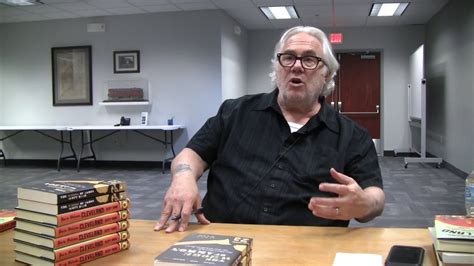A Quote by Joan Rivers
My mother could make anybody feel guilty - she used to get letters of apology from people she didn't even know.
Related Quotes
Ultimately I think I learned a lot from my mother - the way she used fashion to make herself feel better; it was a tool she had and she used it very well. Fashion for her wasn't so far as an escape, but certainly a time where she would sit on her own and prepare what she wanted to wear the next day - it turned into bit of a ritual.
I have to always, always pay homage to a woman I never met but she touched me like she touched so many others with that amazing voice, Whitney Houston. The very first time I heard her voice, I knew I wanted to make people feel that way. Even if I couldn't do all of that that she did, the way she was able to tell my story without even knowing me, the way she could feel what I didn't know how to express, it was spiritual almost.
Even after the age of 50 it was impossible for me to see my mother as a human being. I felt she was a monster, and she had subtly been influencing my behavior and my thoughts and my dreams for so long that she was kind of a monster; she was a demon. And when I brought her back to life, I could feel that malevolent presence around me again, that woman who was totally incapable of giving nurturing to anybody, and, you know, her selfishness and her withdrawn indifference to everything but her own needs.
...fact was she knew more about them than she knew about herself, having never had the map to discover what she was like. Could she sing? (Was it nice to hear when she did?) Was she pretty? Was she a good friend? Could she have been a loving mother? A faithful wife? Have I got a sister and does she favor me? If my mother knew me would she like me? (140)
They were close enough that he could feel the hurried beat of her heart. He could feel Charlotte's indecision in every word she didn't say and every move she didn't make. She was tense with uncertainty, quivering with irresolution. She might not be leaning into him, but she wasn't pulling away, either.
One thing I did have under my belt was, my mother lost her mother when she was 11. She mourned her mother her whole life and made my grandmother seem present even though I never met her. I couldn't imagine how my mom could go on but she did, she took care of us, she worked two jobs and had four children. She was such a good example of how to conduct oneself in a time of grief. When I lost my husband, I tried to model myself as much as I could on her.
My mother was determined that I was going to leave the farm and do well in life. And she thought with the gift, I might be able to do that. So she took in washing. She got a washing machine in 1942 as soon as we got electricity and she took in washing. She washed the schoolteacher's clothes and anybody she could and sent me for singing lessons for $3 per lesson.
He began to trace a pattern on the table with the nail of his thumb. "She kept saying she wanted to keep things exactly the way they were, and that she wished she could stop everything from changing. She got really nervous, like, talking about the future. She once told me that she could see herself now, and she could also see the kind of life she wanted to have - kids, husband, suburbs, you know - but she couldn't figure out how to get from point A to point B.


































